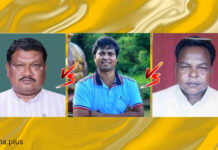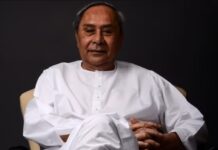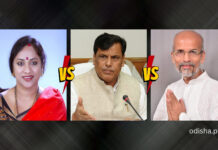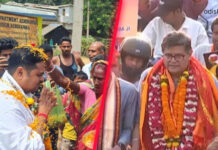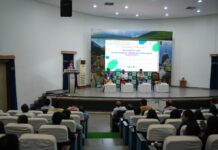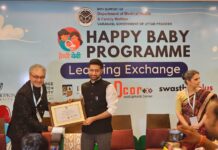Asish Kumar Ray
It will be no exaggeration to say that Michael Kindo was the torchbearer, or, the ‘first hero’ of Hockey in Odisha. Though he was not born in Odisha, his contributions to the development of hockey in the state will remain forever unforgettable.
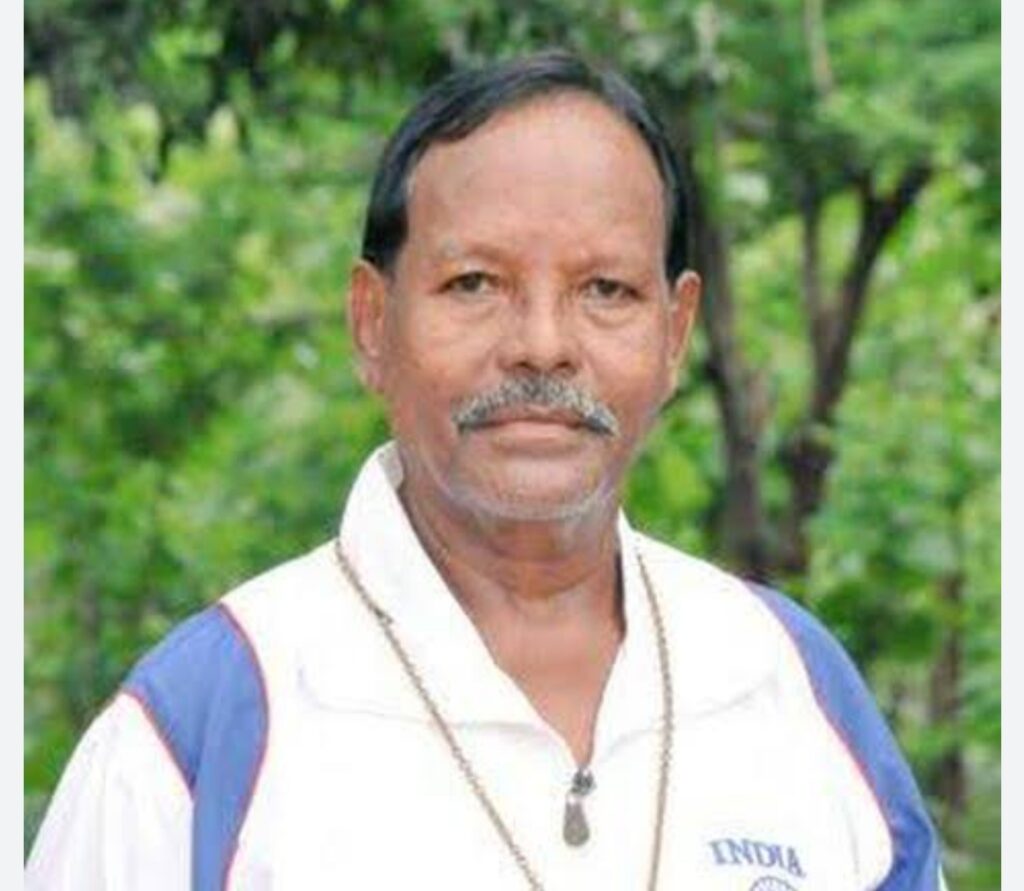
He put his best foot forward in restructuring and developing hockey infrastructure in Sundargarh district after he joined the Rourkela Steel Plant in 1977. He was a mentor and guide to generations of hockey players in the district while leading the Odisha hockey team as its captain, coach and trainer in subsequent period. His contributions in making Sundargarh the ‘Cradle of Indian Hockey’ is invaluable.
Early Life
Kindo was born in Kurdega village in the tribal dominated Simdega district of Jharkhand (then undivided Bihar) on June 20, 1947. From his childhood days, Kindo was attracted towards hockey from among the various popular sports of that time, like football, athletics, archery, or hockey. He would make sticks out of tree branches and practice in the village ground with his friends and contemporaries.
Soon, hockey became a passion for him and later he found a place in the hockey team of Bihar state. There was no looking back thereafter. His talents not only earned him name and fame, but helped him in securing a job in the Navy and play for Services.
International Success
Repeated high performance in the Rangaswamy Cup and other national-level tournaments enabled Kindo in getting a berth in the National team in 1967-68. He became the second tribal player to represent the Indian hockey team after Jaypal Singh Munda who had capped the national team at the Amsterdam Olympics in 1928. However, Kindo wasn’t selected in the Indian team for the Mexico City Olympics in 1968. The development ceased to dampen the spirit of Kindo who kept focusing more on his game rather than cursing his fate.
The moment came in 1971 when he was picked in the Indian team for the first ever Hockey World Cup at Barcelona in Spain. Though the Indian team performed well in the league matches, but it had to contend with a bronze medal by finishing third after Spain and Pakistan. The Indian squad, led by Ajit Pal Singh, had won the bronze by defeating Kenya by a margin of 2-1 goals. However, the 2-1 defeat to Pakistan in the semi-final match was heartbreaking.
In the next Munich Olympics, the Indian team, led by MP Ganesh, again bagged the bronze medal after finishing behind Pakistan and West Germany. After losing to Pakistan in the semi finals, the Indian hockey team earned the bronze in a 2-1 play-off with the Netherlands. That was the first and the only Olympic medal for Kindo.
Spectacular Performance in World Cups
The Indian squad had created tremendous possibilities for the gold in the second Hockey World Cup at Amstelveen in Netherlands in 1978 with electrifying performance throughout the tournament. The Indian team, which had crushed Pakistan in the semi-final match, was in an advantageous position after scoring two goals against the Netherlands in the first eight minutes of the final match.
However, the match ended in a draw and India had to be satisfied with a silver medal after losing in a tie-breaker. The match will remain memorable for the spectacular performance displayed by the Indian hockey team captain MP Ganesh and players BP Govinda, Ajit Pal Singh, Baldev Singh and, of course, Michael Kindo.
The loss of opportunity to win the 1973 World Cup was compensated in the 1975 World Cup at Kuala Lumpur in Malaysia. After defeating Malaysia by a margin of 3-2 goals, India became the world champions in hockey after thrashing Pakistan by 2-1 in the final match. It was an unforgettable victory as it came a decade after the gold in the 1964 Olympics at Tokyo.
The emphatic win was attributed to the high-voltage performance by skipper Ajit Pal Singh, Surjit Singh, Ashok Kumar, VJ Philips, Harcharan Singh, Mohinder Singh, BP Govinda, Aslam Sher Khan as well as Michael Kindo.
The Iron Wall of Indian Team
Kindo, who played in the defensively full back position, was like an Iron Wall of the Indian team. Looking at his performance in the 1973 and 1975 World Cups, radio commentators those days gave him the moniker.
In fact, it was extremely difficult for players from the opposite teams to dribble the ball past Kindo. The captain of the 1975 World Cup winning Indian team Ajit Pal Singh had once famously said, “the reason behind the Indian team transforming into an attacking team can be attributed to the fact that players know they have Michael Kindo in the defensive position.”
Michael Kindo & Hockey Odisha
After playing more than 50 international matches, Michael Kindo finally settled down in Odisha after joining the Rourkela Steel Plant. Following his stay in the Steel City, he led the Odisha team as its captain and shouldered the responsibility of developing hockey in Sundargarh district. Under his captaincy, the Odisha team qualified for the semi-finals of two consecutive Rangaswamy Cup tournaments in 1979 and 1980 which was the high point in his sporting career.
However, his greatest success lied in delivering a string of top-class players from Sundargarh district.. from Peter Tirkey, Sharan Bek, Dlabians Mad and Yajuk Ali to Dilip Tirkey, Lazarus Barla, Ignas Tirkey, Gloria Dung Dung, Jyoti Sunita Kulu, Subhadra Pradhan as well as the players of the present generation. Kindo has been an idol and mentor for generations of players in Odisha who have earned name for the state and the country by following his footsteps.
Awards and Honours
In 1972, Michael Kindo received the Arjuna Award, the highest award for a sportsperson in India those days, for winning gold and silver medals in Hockey World Cups and a bronze in the Olympics. In fact, he was the first tribal player to have been bestowed with the honour. Apart from that, the Indian Navy conferred him the Best Services Sportsman Award in 1971.
Kindo was present at a function organised on the sidelines of the 2018 Men’s Hockey World Cup in Bhubaneswar to felicitate the members of the 1971 World Cup winning Indian team.
However, few months after the event, Kindo was bed ridden at his residence in Rourkela. After a protracted battle, he breathed his last on the last day of that year (December 31, 2020) at the age of 73. A deafening silence descended around the ‘Iron Wall of Indian Hockey’. His passing away was a big blow to the game not just in Odisha, but India as a whole.
Though Kindo is no more, the path he carved out has shown direction to many illustrious players from Sundargarh district, Odisha, Jharkhand and the country at large, in adopting the National Game and bringing glory to the state and India as well.
(This article was first published in Odia language on the portal www.odisha.live)

